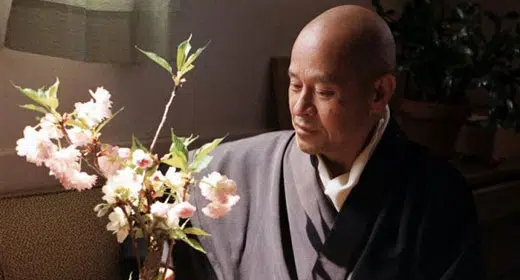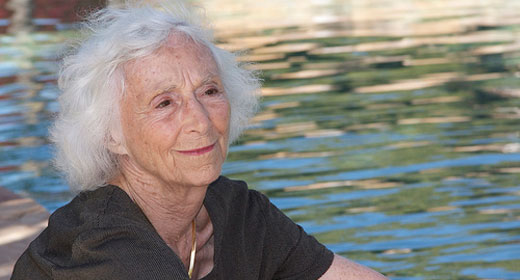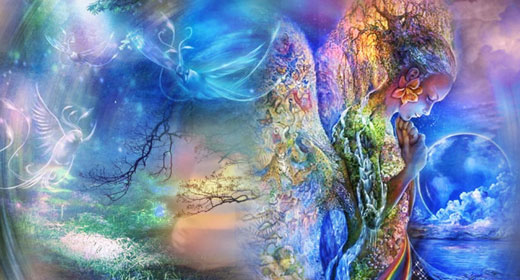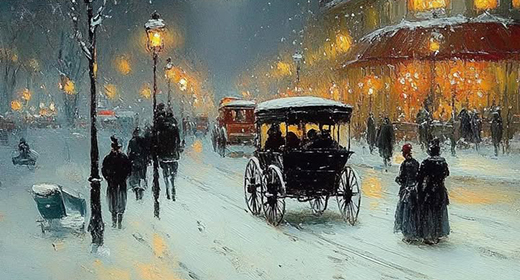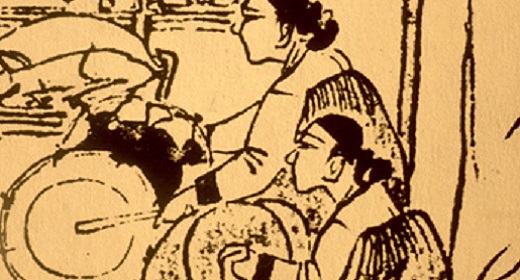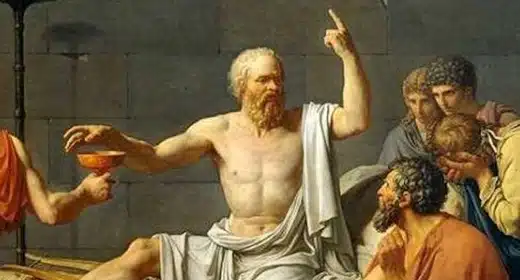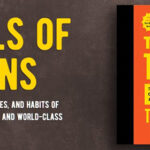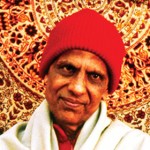AWAKEN: Firstly, thank you, Osho (Bhagwan Shree Rajneesh), so much for your time today. We are thrilled to share your words with our readers,
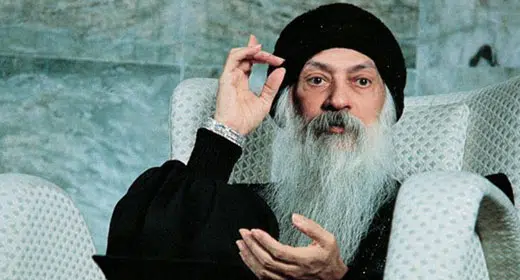
here at Awaken. And that is actually where I’d like to start… What does it mean to awaken?
OSHO: It is such a simple thing… Be here now, and enlightenment happens to you. It has already happened; only you have to recognize it. It has happened even before you were born. It has happened simultaneously with your life. Your very existence is enlightened. Just a turning – in, a conversion… and the recognition.
And the recognition is possible only if you turn here now. If you go on moving, chasing the shadows, then you will not have time and space to move within. All future is without, and the present is within.
The present is not part of time. The present is eternity. It is now – eternal. It is within you.
AWAKEN: What does true turning in feel like?
Once you turn in, you will start laughing.
It is said that when Bodhidharma attained, he started laughing, a deep belly laughter. He started rolling on the ground and the disciples gathered and they said, “what has happened? Have you gone mad?“ He looked really crazy. And he was sitting for nine years and nobody had ever seen even a smile on his face. He was a very severe and serious person.
For nine years continuously he was looking at the wall… Continuously sitting near the wall and looking at the wall. He had not even turned to talk to any man for nine years – a very serious man. And he had decided that he would not get up unless he came to know what truth is. Tradition has it that his legs withered away. Nine years is a long time; maybe it really happened. But that is not the point. One thing is certain. Legs are representative of activity, movement, desire, going, a goal. Legs are a representative of all that. Certainly in those nine years, goals disappeared. There was no where to go. All motivation, all desire to achieve disappeared. Certainly legs withered away.
And then one day, suddenly, this man is rolling and laughing – must have gone mad. People must’ve been thinking that sitting for nine years watching the wall is bound to create madness. But why was he laughing? He was laughing at the whole absurdity, the very ridiculousness of it – that all that he was seeking he had already within him and he was not aware.
Your treasure is with you. Your treasure is already within you.
AWAKEN: And yet, despite sitting for nine years, you say it is simple to awaken? Why does it seem so difficult? Dedicated practitioners in all of the wisdom traditions of the world spend years in arduous disciplines waiting for some sort of awakening or realization…
OSHO: All the Buddhas have insisted on only one thing: Awaken! Continuously, for centuries, their whole teaching can be contained in a single phrase: Be awake. And they have been devising methods, strategies; they have been creating contexts and spaces and energy fields in which you can be shocked into awareness.
AWAKEN: Shocked?
OSHO: Yes, unless you are shocked, shaken to your very foundations, you will not awaken.
AWAKEN: Maybe this answers my own question as to why it is so difficult to awaken?
OSHO: Each cell of your body and each fiber of your mind has become full of sleep. It is not a small phenomenon. Hence, great effort is needed to be alert, to be attentive, to be watchful, to become a witness.
AWAKEN: So… Bodhidharma learned to become a witness… He learned to stop running and doing… And yet we are collectively, still today, obsessed with doing and praised for “being productive!“
OSHO: Yes, we have become very efficient in doing things. What we are doing, we have become so efficient in doing that we don’t see any awareness to do it. It has become mechanical, automatic. We function like robots. We are not men yet; we are machines.
AWAKEN: We recently interviewed George Gurdjieff, who spoke similarly.
OSHO: Yes, that’s what George Gurdjieff used to say again and again, that man as he exists is a machine. He offended many people, because nobody likes to be called a machine. Machines like to be called guards; then they feel very happy, puffed up. Gurdjieff used to call people machines, and he was right. If you watch yourself, you will know how mechanically you behave.
AWAKEN: It is not a very dignified view of humans, to be sure! It is an age old question, but do you think humans, despite their mechanized ways, and despite the ruins we have collectively inflicted upon the environment, are still capable of being good? And wise? If not, how can we ever turn things around?
OSHO: Man is a ladder between heaven and hell. That’s why it is only human beings who manipulate, who kill, who try to conquer the natural flow of nature. Only human beings are stupid – and that is because they can be Buddhas. Because human beings have intelligence, that’s why they can be stupid. Stupidity does not mean the absence of intelligence, it simply means you have not used it. If there is no presence of intelligence, you cannot call human beings stupid. You cannot call a rock stupid – a rock is a rock, there is no question of stupidity.
But you can call humans stupid because with humans there is hope, a ray of great light. With the human being, a door opens toward the beyond. Man can transcend himself and he is not doing it – that’s his stupidity. He can grow, and he is not growing, he is clinging to all kinds of immaturity – that is his stupidity. He goes on and on living in the past, which is no more – that is his stupidity. Or he starts projecting into the future, which is not yet – that is his stupidity.
One should live in the present with deep passion, with great love, with intensity, with awareness, and that will become your intelligence. It is the same energy – upside down it is stupidity; rearrange it, put it right, and it becomes intelligence.
AWAKEN: But certainly, getting “educated“ in the conventional sense can’t be the answer, since it has not served us so well, considering the evidence, thus far?
OSHO: The whole educational system rotates around the idea of ambition; it creates ambitiousness. Ambitiousness is nothing but ego. “Become the first, become the most famous. Become a prime minister or a president. Become world known, leave your mark on history.“ It does not teach you to live totally. It does not teach you to love totally. It does not teach you to live gracefully, it teaches you how to exploit others for your own purposes. And we think that the people who are clever are the ones who succeed. They are cunning, but we call them clever. They are not intelligent people.
An intelligent person can never use another person as a means; he will respect the other. An intelligent person will be able to see the equality of all. Yes, he will see the differences too, but differences make no difference as far as equality is concerned. He will have tremendous respect for others’ freedom – he cannot exploit them, he cannot reduce them to things, he cannot make them stepping stones to the fulfillment of some absurd desire to be the first. Hence we go on conditioning children.
AWAKEN: And yet children are, to use a Zen phrase, the ones with “beginners mind”… they are naturally wise, aren’t they?
OSHO: Unless you are like a small child there is no hope for you. Jesus says: Unless you become like small children you cannot enter into my kingdom of God. Before the conditioning happens, children are immensely intelligent. It has been said by Buddha, by Lao Tzu, by Jesus, by all the awakened ones.
AWAKEN: Can you speak more to this idea of conditioning? Do you mean psychological conditioning?
OSHO: All kinds of conditionings are poisons. To think of oneself as a Hindu is to think of oneself as opposed to humanity. To you think of oneself as a German, as Chinese, is to think of oneself as opposed to humanity. It is to think in terms of enmity, not friendship.
Think of yourself only as a human being. If you have any intelligence, think of yourself only as a human being. And when your intelligence grows a little more, you will drop even the adjective human; you will think of yourself only as a being. And the being includes all – the trees and the mountains and the rivers and the stars and the birds and the animals.
Become bigger, become huge.
Don’t be a Catholic and don’t be a communist, just be a human being. These are all poisonous, these are all prejudices. And down the ages you have been hypnotized into these prejudices. They have become part of your blood, your bones, you are very narrow. You will have to be very alert to get rid of all this poisoning.
Your body is not poisoned as much as your mind is. The body is a simple phenomenon, it can be easily cleaned. If you have been eating non-vegetarian foods it can be stopped, it is not such a big deal. And if you stop eating meat, within three months your body will be completely free of all the poisons created by non-vegetarian foods. It is simple. Physiology is not very complicated. But the problem arises with the psychology.
AWAKEN: How do we liberate ourselves?
OSHO: The real freedom is freedom from any ideology. Can’t you simply live without any ideology? Is an ideology needed? Why is an ideology needed so much? It is needed because it helps you to remain stupid, it is needed because it helps you to remain unintelligent. It is needed because it supplies you ready made answers and you need not find them on your own.
AWAKEN: To take this theme of social conditioning into a slightly different direction, I’d like to talk a bit about the male/female imbalance in the world. Do you agree that this is a problem and if so, what are your thoughts?
OSHO: Why has it been continually insisted that the woman is inferior? It is politics. It is a power game.
Why has woman been proclaimed inferior by men all over the world? Because this was the only way to keep her in bondage, to make a slave out of her. It was easier. If she was equal, then there would be trouble; she should be conditioned to the idea that she is inferior. And the reasons given are that she has less muscular strength; her height is less… but this is a cunning way. There are other things also to be compared…
You have to think from other angles, too. The woman has more resistance power than man… Women fall sick less than men; they live longer than men, five years longer. It is a stupid society where we have decided that the husband should be four or five years older than the wife – just to prove that the husband is more experienced, elder, to keep his superiority intact. But it is not medically right because the woman is going to live five years longer. If you think medically, then the husband should be five years younger than the wife, so that they can die at almost the same time
No, if you think that a woman lives five years longer than a man, then who is superior? If she falls sick less, has more resistance, then who is superior? Women commit suicide 50 percent less than men. The same ratio is true of madness; 50 percent fewer women become mad than men. Now, these facts have never been considered – why?
AWAKEN: Before leaving the idea of education altogether, what is another necessary reform that you see in education?
OSHO: Just let the child see. Don’t say anything. Let him feel. When you take the child to the garden, don’t say the trees are green. Let the child feel, let the child absorb. Simple things, “the grass is green“ – don’t say it.
And the whole educational system of the world depends on memory. In the examinations, they don’t ask the students something that will show his intelligence, but something that will show his memory, how much he remembers from textbooks. This is one of the reasons for your retarded mind. You have used the memory as if it were your intelligence – a tremendously grave misunderstanding. Because you know and remember and you can quote scriptures, you start thinking that you are grown up, you are mature, that you are knowledgeable, you are wise. This is the problem.
I am not a man of memory. And my effort here is to provoke a challenge in you so that you start moving toward your intelligence.
It is of no use how much you remember. What is significant is how much you have experienced, yourself.
AWAKEN: As a teacher, I have always felt this way too… Which is why I never used traditional testing methods, which would have only promoted flashcard-style, rote memorization… But yet that is the norm.
OSHO: In the west, many people come to realize something and think that they are giving something new. It looks new because they are unacquainted, they don’t know.
If you think there is something new, it only means that you are not well acquainted with India. Nothing has been new after Buddha, because at that time everything was searched, almost every possibility finished.
For example, when for the first time, Sigmund Freud said that, “I suspect that the conscious mind is not the whole mind. Deep down in the conscious there is a subconscious layer. And even beyond that, I suspect an unconscious layer,” it was thought that it is a very revolutionary discovery. But at Buddha’s time it was known; not only this, Buddha talks about still further layers. He talks about seven layers of the mind.
Then Jung suggested that beyond the unconscious, there seems to be a collective unconscious – that is the fourth layer of Buddha. Now the whole of psychology has come to this fourth layer – all four are suggested by Buddha –but three more are there; sooner or later we will discover them.
AWAKEN: So much emphasis in the west and in our educational system, on the mind and on the importance of “using your head”…
OSHO: Head is aggression; head is a rapist. And we have been trained to be rapists because we have been trained only in the head – ambition, ego, aggression. All our educational systems prepare us for rape – how to rape nature, how to rape others, how to rape everybody, how to be aggressive, and how to prove that you are Alexander the great or Adolf Hitler or some other stupid fellow. All education teaches ambition, and ambition is rape – that’s why I say the head is a rapist.
AWAKEN: Do you feel that this separation between mind and body — so traditional in the west… going back to Descartes — has anything to do with our fear of the body and of sex, in particular?
OSHO: Try to understand it. You have turned your sexuality into work. People make love as if it has to be done like a duty. There are Mahatmas – for example, Mahatma Gandhi – Who says make love only when you want to procreate. Now this is the head dominating, trying to dominate sex. So make love only when you want to procreate. It is as if sexuality has no other function; as if sexuality is just like a factory – when you want to procreate, good, go into it dutifully, fulfill it skillfully, and be finished with it.
For Mahatma Gandhi and people like him, making love just for fun is a sin; he calls it sin. For such people – and these people are masochists – anything that smacks of joy is sin. Don’t do anything for joy, do it for some purpose. These people are business people. Mahatma Gandhi came from a business family; he was a vaishya, A businessman. And he remained a businessman to the very end — very calculating, very clever. But everything has to have a purpose, even sex. You cannot love your woman or your men just out of joy, just because the full moon is there in the night, just because the beach is beautiful, just because the seat is roaring so tremendously, just because the rain is falling so beautifully, just because you want to celebrate your energies. No – Gandhi will say no, this is a sin.
AWAKEN: The western emphasis on the mind has engendered a kind of fear of the body! But in the west, the mind is thought to be our master and the cradle of our intelligence and rationality. Who are we, really?
OSHO: The stomach is the real seat of your being. The head has become the dictator because of language and words and theories and education and learning and knowledge. The head has almost become your seat – it is not.
Just the other night I was talking about a Zen master used to keep two dolls around him. They were almost alike but inside there was a difference. One doll was too heavy in the head – some heavy metal must have been put inside the head. Another doll was too heavy at the bottom. In the stomach heavy-metal was put. And they looked alike and they were dressed alike. They were always sitting by his side.
And whenever somebody will come and ask, “what is Zen?“ or, “What is meditation and how to attain it?“ first he would push one doll – the head-heavy doll — and it would fall flat and would not be able to get back up. How can it get up? The head is too heavy. Then he would push the other doll – the bottom was too heavy, so you could go on pushing, but it popped back and sat again in the Buddha posture.
And he would say, “This is Zen – the stomach. This is East – the stomach.“
In all old eastern countries, particularly the far east, they have always thought that man lives in the belly. In the old days – just 100 years ago – if you had gone to Japan you would have found people who, if you asked them “where do you think?“ Would show their belly – “We think here.“ Now they are disappearing, particularly after the second world war. Japan itself has become like the west – the American impact is too much. Now they will laugh and nobody will tell you that they think from the belly – it looks so foolish to think from the belly. Now they have started thinking from the head.
But the emphasis is important. The belly is your source of life.
AWAKEN: Yes, the belly is called the hara in Japan. The Tan Tien in Taoist philosophy! The source of true inner power and confidence…
OSHO: This head versus stomach can be given many formulations: intellect versus intuition; logic versus love; consciousness versus unconsciousness; part versus whole; doing versus happening; death versus life; having versus being.
AWAKEN: When I was a Zen student, it was said that breathing into the belly was the way to the here and now, and the way to let go of all of the stuff from the past that causes suffering…
OSHO: This is one of the great messages of Zen… in a single moment, all the past can be dropped.
AWAKEN: Are you referring to burning karma?
OSHO: Past karma? Your past life is no longer there, how can it go on hanging around you? It hangs there only because of your habit, because you go on practicing it. The day you stop this practice you are free of it.
You can be enlightened instantaneously!
The Zen illogic, or the Zen logic, is very, very clear. Zen says you can get right out of it all, this moment… because it is just a clinging on your part. It is not that the karmas are clinging to you, you are clinging to them. If you stop clinging… finished.
AWAKEN: And yet, having spent time in a Zen monastery, I don’t kid myself… It is difficult to be truly present for even one minute! What is the most approachable method of getting into the body and into connection with ourselves, as a whole, as well as with others?
OSHO: If you go meet a saint, always watch his breathing. And if you feel sympathetic, in deep love with him, watch your breathing, also. You will suddenly feel that the nearer you come to him, your feeling and your breathing fall in tune with his breathing.
In deep breathing together, something of deep empathy arises; you become one – because breath is life. Then feeling can be transferred, thoughts can be transferred.
Pranayam means to breathe with the whole. That is my translation, not “control of breath“ but to breathe with the whole. To breathe with the whole, to become the breath of the eternal and the whole, is pranayam. Then you expand. Then your life energy goes on expanding with the trees and mountains and sky and stars. Then a moment comes, the day you become a Buddha… You have completely disappeared. Now you no longer breathe; the whole breathes in you. Now your breathing and the whole’s breathing are never apart; they are always together. So much so that it is now useless to say, “This is my breath.“
AWAKEN: This idea of disappearing… It must sound strange at first to many people… Perhaps it is difficult to let go of the idea of self as we conventionally think of ourselves… Perhaps it is all just ego trying to protect us by keeping us separate?
OSHO: The ego is a subtle wall around you. It does not allow anybody to enter into you. You feel protected, secure, but the security is death-like. It is the security of the plant inside the seed. The plant is afraid to sprout because who knows? The world is so hazardous and the plant will be so soft, so fragile. Behind the wall of the seed, hiding inside the cell, everything is protected.
Or think of a small child in the mother’s womb…
But would you like to remain always in your mother’s womb? It is comfortable, but it is not life.
The English word ecstasy is very, very significant. It means to stand out. Ecstasy means to get out — out of all shells and all protections and all egos and all comforts, all death-like walls. To be ecstatic means to get out, to be free, to be moving, to be a process, to be vulnerable so that winds can come and pass through you.
The eagle is the egg, and you will have to come out of it. Be ecstatic! Get out of all protections and shells and insecurities.
AWAKEN: What stops us?
OSHO: Fear cripples you.
AWAKEN: How do we deal with fear?
OSHO: If love happens, fear will disappear from the mind. You will have a life of freedom, at ease, at homeness.
If prayer happens, then fear completely disappears, because with prayer you become one – you start feeling a deep relationship with the whole. From the spirit, fear disappears; the fear of death disappears when you pray, never before it. And when you meditate, even fearlessness disappears. Fear disappears, fearlessness disappears. Nothing remains. Or, only the nothing remains. Vast purity, virginity, innocence.
AWAKEN: I love that you mentioned prayer. My Italian grandma taught me how to pray when I was little, and it made me feel very cozy… That’s all I knew, was that it made me feel safe and cozy. And I have gone back to prayer through the years… but many people are afraid of it, perhaps because they associate it with religiosity. Can you say more about prayer?
OSHO: Religions, organized churches, have destroyed it. They have given you ready-made prayers. Prayer is a spontaneous feeling.
Say things that you would like to say. Talk to God as you would talk to a wise friend. But don’t bring formalities in. A formal relationship is not a relationship at all. And you have become formal with God also? You miss all spontaneousness.
Bring love into prayer. Then you can talk! It is a beautiful thing, a dialogue with the universe.
If you go to a tree and start talking, or to a flower, a rose, people will think you are mad. If you go to the church and talk to the cross or to an image, nobody will think you are mad, they will think you are religious. You are talking to a stone in the temple and everybody thinks you are religious because this is the authorized form.
If you talk to a rose, which is more alive than any stone image… if you talk to a tree, which is more deeply rooted in God than any cross because no cross has roots, it is a dead thing – that’s why it kills… A tree is alive, with roots deep into the earth, branches high into the sky, connected with the whole, with the rays of the sun, with the stars –talk to the trees! That can be a contact point with the divine.
AWAKEN: And returning to this beautiful idea of ecstasy, many people use certain substances to try to achieve a vision or a glimpse of the divine… What is your opinion of this?
OSHO: I am against drugs, for the simple reason that they help you to forget your misery for a time. They do not prepare you to fight misery and suffering; rather, they weaken you.
But the reasons of religions and governments for being against drugs and my reasons for being against drugs are totally different. I am against drugs because they destroy your inner growth toward spirituality. They prevent you from reaching the promised land. You remain hanging around the hallucinations, while you are capable of reaching the real. They give you a toy.
But since drugs are not going to disappear, I would like every government, every scientific lab, to purify drugs, to make them healthier without any side effects, which is possible now. We can create a drug like the one Aldous Huxley, in memory of the Rigveda, called “soma“ – which will be without any bad effects, which will not be addictive, which will be a joy, a happiness, a dance, a song.
Perhaps small experiences will lead the person to explore more. Sooner or later he is going to be fed up with the drug, because it will go on repeating the same scene again and again. However beautiful the scene is, repetition makes it boring.
So first purify the drug from all bad effects. Second, let people who want to enjoy, enjoy. They will become bored by it. And then their only path will be to seek some method of meditation to find the ultimate bliss.
AWAKEN: What exactly do you mean by bliss? Happiness? Why is it so elusive to most?
OSHO: Why has man remained in so much misery? And the miracle is that everybody wants to be happy. You cannot find a single person who wants to be miserable, yet everybody is in misery. Everybody wants to be happy, blissful, peaceful, silent. Everybody wants to be in joy, everybody wants to celebrate – but it seems impossible.
One basic thing has to be understood. Man wants happiness; that’s why he is miserable. The more you want to be happy, the more miserable you will be. Now this seems very absurd, but this is the root cause. And when you understand the process of how the human mind functions you will be able to realize it.
Man wants to be happy; hence he creates misery. If you want to get out of misery, you will have to get out of your desire for happiness – then nobody can make you miserable. Here is what Freud missed. He could not understand that the very desire for happiness can be the cause of misery.
AWAKEN: Why does this mechanism make happiness impossible?
OSHO: How does it happen? Why in the first place do you desire your happiness? And what does the desire for happiness do to you?
The moment you desire happiness, you have moved away from the present. You have moved away from the existential, you have already moved into the future – which is nowhere, which has not come yet. You have moved into a dream. Now, dreams can never be fulfilling. Your desire for happiness is a dream, the dream is unreal. Through the unreal, nobody has ever been able to reach the real. You have taken a wrong train.
The desire for happiness simply shows that you are not happy right at this moment.
Just stop seeking, and you have found it – because seeking means an effort of the mind, and non-seeking means a state of relaxation. And happiness is possible only when you are relaxed.
AWAKEN: On that, I want to thank you, Osho, for your time today. It has been an honor and a delight to talk with you!
This is one of Awaken’s Dream Interviews, conducted by Donna Quesada, and All Answers are Verbatim from Osho.


